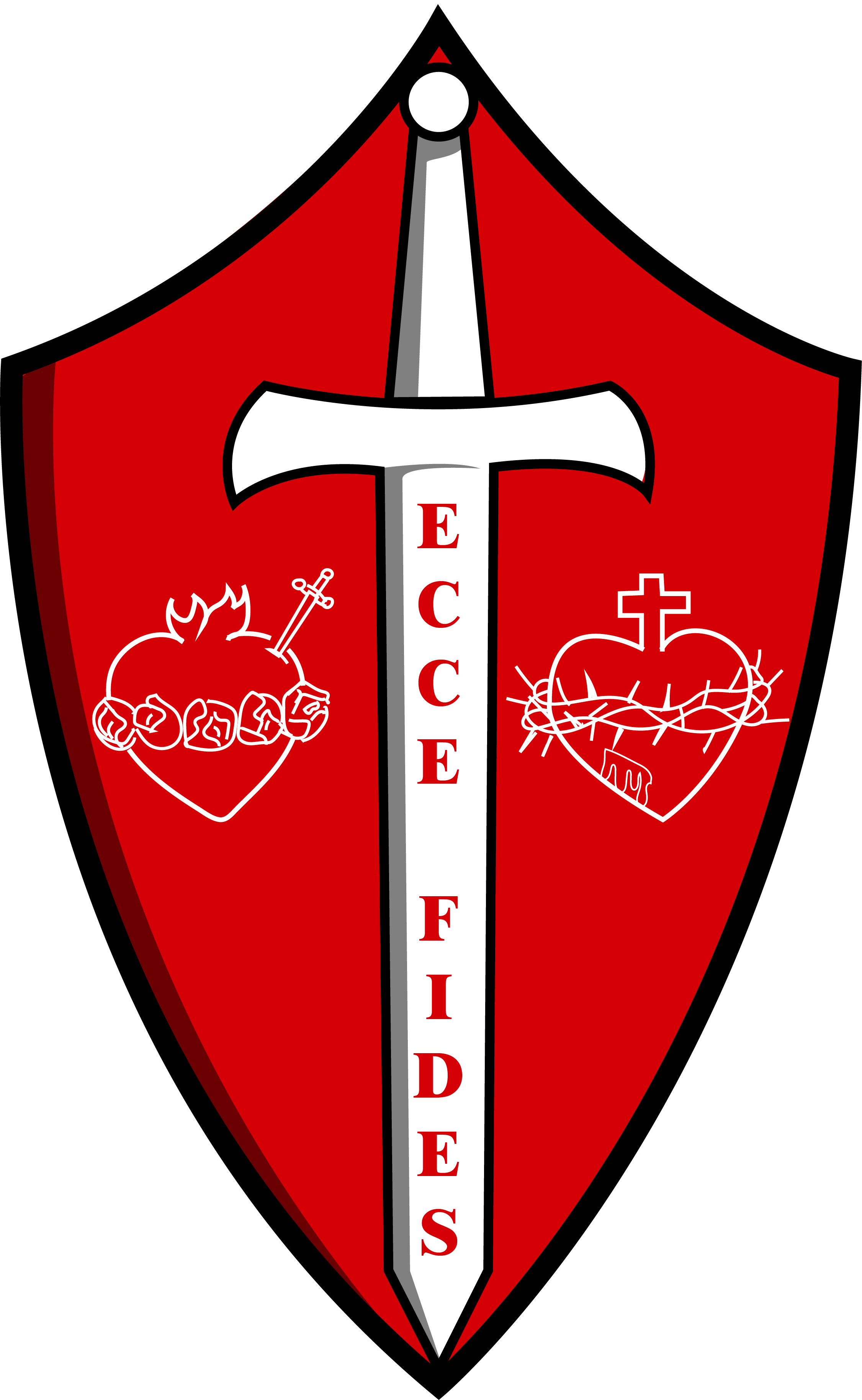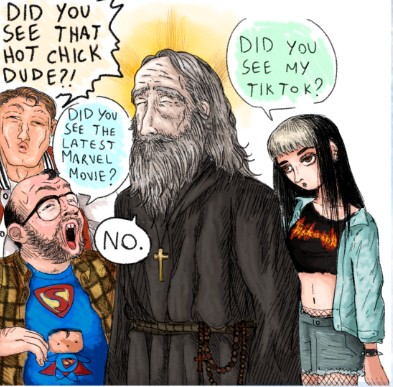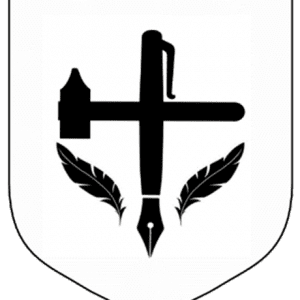Another dusty dawn flung its arms wearily over the sprawling city of glass and ash. A bird from high—if any bird indeed still flew in those airs—would look down upon such an indistinct mass of tumbled grey buildings far below. This, the fruit of innumerable years of human labor, that it would hardly be able to espy a break in the uniformity of the endless dirtied grid of narrow ways and great glass behemoths. Indeed, the smokes and vapors constantly arising from below heaped illusion upon an already troubled and madly labyrinthine landscape extending in all directions forever. Yet a keen-eyed fowl, flying low, would see amid the reek that this was not entirely so. There was a break in the monotony of Man’s progress: a long building of brick, blackened by age and soot, with a spire reaching vainly for the heavens, wedged between neighbors taller than tall and forgotten by them utterly. A lone surviving Titan of its day, now greatly eclipsed by its later Olympian children, full of scorn; the once-vigorous inheritors of an older world, now half-ruinous themselves.
Only if such a bird were to come to rest on the ledges about the spire’s base, as his many ancestors once were wont to do, would he glimpse the bent and hurrying figure of a man far below at street-level, nearing the rear of the ancient brick structure. The bleak-some beams of growing light fortunate enough to escape between the tall pillars of the sky revealed him for an instant before he slipped through a back window and disappeared.
Mr. Edwin Churchouse (for such was the name he had taken for himself in this age when such things as last names were unimportant and unknown) had returned home. He nodded to the grey cat awaiting him on the other side of the rotting window-sill.
“Not much good today, little Scholastica,” he grunted as he clambered over the defensive barricade of wooden benches installed just within the window’s entry. “I’m afraid you’ll have to resort to your old profession this week. Seems your old pals beat me to it this time,” he said, referring to the roaming packs of wild dogs common in that city district.
The cat looked at him dolefully and, following him, eyed the filthy burlap sack the man carried. The morning’s three-hour pre-dawn scavenge effort aside, there wasn’t much to show for it. Half a dozen hard and blackened rolls, an unlabelled glass jar of some dark liquid smelt of prune juice, and several sad odds and ends of fruit and vegetable garbage scraps. Such was the fare of the day—of every day if one knew the right places to visit. Edwin Churchouse knew them all, for most mornings, long before first light, he would go out into the darkened world and see what he could pilfer, always returning just as dawn was breaking. Those twilit hours were best as fewer folk were then abroad; because he lived in a city that never ceased producing noise and movement, this was as good as he could wish. It would do no good to encounter anyone much on the streets and even less good if they saw him enter his abode. As far as he could tell, nobody knew the old building was occupied, and he presumed that nobody really cared if it were. But he didn’t want to find out if that were so. He’d had enough trouble in recent weeks with the boys.
Sighing, he dropped his overcoat on a large crate as he sauntered along the narrow passage, with Scholastica following at his heels. The passage opened to a vast space as light as the hall had been dark.
Multi-colored flecks of light were cast about the floor and walls of an enormous room, with arched ceilings sixty feet above the old man’s head. Many stained glass windows there were in that space, high up on the walls; grandest of all were those set over what had once been the apse of the great church, over the high altar. Parts of some windows had been broken over the years, allowing untinted sunlight to filter through, but in the main, the church was a veritable relic of the old world. The books were the most noticeable thing about the place, after the brilliant light from the windows. Stacks upon stacks of books filled every corner of the nave, and many tall bookshelves lined the walls under the windows. Several pews remained still in their proper place; these too functioned as shelves. Edwin strode to his desk, a great mass of papers and books piled high to the right of the abandoned high altar. Besides this, he had a large cabinet that served as his pantry and larder. He deposited the winnings of the day and then beckoned to Scholastica. She leapt onto a free corner of the desk, and he spooned out a small sampling of tuna fish for her—what a rare delicacy! He began to nibble on one of the fresh biscuits. Then, turning, he surveyed the day’s task: a page overwritten in his thin and flowing script. His writing ended three-quarters of the way down the left-hand page. Chewing the indigestibly hard bread and savoring the taste of each mouthful, he took up his pen and continued from where he had left off the evening before. Frequently he turned, writing in several blue books splayed open before him on the desk; written annals of the last years before books had ceased to be.
Thus for many years—for many decades—he had worked, had slept, had thought. Changes to this routine were seldom for his jewel-box world, insulated as it was from the horrors without. The painted saints on the walls and ceiling looked down upon him protectingly, their peeling faces held in a serene gaze. His books and the memories they offered him kept his heart and mind ever-young, and he desired naught else. Edwin had become fearful of the outside world and its barbaric inhabitants—rightfully so—and he was sure, despite occasional passing fits of loneliness, that having another there for company would ease his heart little. His feline friend and her many predecessors had given him all the companionship he dared.
Therefore it is understandable that when a great banging began on the church’s main doors, three hours past the rising of the sun, the old man bolted up amid his research. This brought him anything but consolation; instead, each long rumbling crash strengthened the long-festering dread of discovery growing in his heart.


